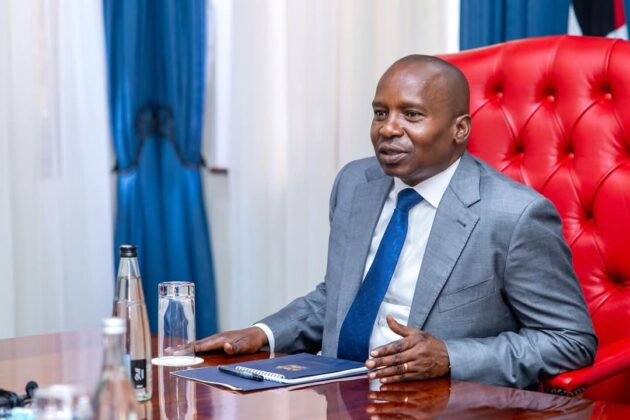
19.5mn Kenyans Enrolled in UHC » Capital News
NAIROBI, Kenya, Feb 17 – Deputy President Kithure Kindiki has reported that 19.5 million Kenyans are now enrolled in the national health program, with all of them receiving free primary health care.
Speaking at his official residence during the first health summit of the year on Monday, the DP noted that while progress has been made, more needs to be done to ensure all registered individuals actively contribute to the program to unlock additional benefits beyond primary care.
“We seem to be making good progress. However, the situation requires us to firm up on contributions. Now, we need to do some work to ensure as many people as possible who have registered are making contributions,” Kindiki stated.
The Second in command emphasized that Universal Health Coverage (UHC) is one of the most consequential interventions by the Kenya Kwanza administration, describing it as a transformative step toward national development.
“This government is committed to ensuring that every citizen of Kenya has medical insurance. Even some of the most advanced economies have struggled with universal health care, but we are determined to make history,” he remarked.
He underscored that a healthy population is critical to Kenya’s long-term economic stability, alongside education, job creation, infrastructure development, and value chains.
“Health and education are the two social sector enablers that will help us transform Kenya. Economic growth cannot be sustained without a healthy population,” he added.
The DP acknowledged the financial challenges in rolling out comprehensive health coverage, noting that the government is working on measures to ensure sustainable funding including provisions in the forthcoming supplementary budget, particularly for emergency care, chronic illnesses, and critical care.
“We are taking feedback from stakeholders and incorporating it into our budget planning. The upcoming supplementary budget will address financing gaps to ensure all Kenyans benefit fully,” he affirmed.
Kindiki also highlighted key ongoing efforts including the development of a revised means testing tool, a new data-driven approach to assess financial capability and ensure fair access to subsidized care.
He emphasized the need for improving the health workforce, addressing intern placements, Collective Bargaining Agreements (CBAs) for health workers, and staffing issues further outlining efforts to upgrade health facilities, strengthening the National Equipment Support Program to enhance service delivery, and accelerating healthcare digitization for efficiency.
The DP further assured Kenyans that development partner policies will not disrupt service delivery and called for collaboration among stakeholders, including county governments, government agencies, and international partners, to ensure the success of UHC.
“We must all work together to make this vision a reality. We are not leaving anything to chance,” he stated. “We must affirm time for care because we owe it to our people. This is not just a policy it is a lifeline for every Kenyan.”